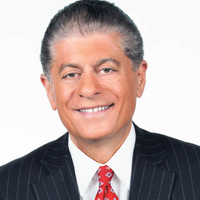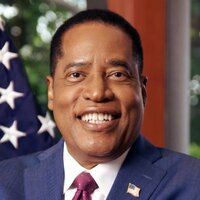Judge Andrew P. Napolitano
The arrest last week of 21-year-old air National Guardsman Jack Teixeira on charges of espionage has sparked a debate in the intelligence community and elsewhere about whether his behavior is criminal or heroic. He apparently shared top-secret intelligence and military briefings -- to which he had lawful access -- with folks in his chatroom, at least one of whom let the cat out of the bag.
Is Teixeira a pawn for folks in the government far senior to him who believe that the United States needs to cease its criminal foray into the Russia/Ukraine war? Or should he be prosecuted because government agents have risked their lives to amass data about Russia and the compromise of this data can be fatal to them and their sources?
I look at this from the perspective of the natural human right to search for and reveal the truth.
What we have here is either Teixeira operating on his own in an effort to impress acquaintances whom he barely knew or Teixeira as a pawn for government officials repulsed by Biden administration policies.
What are these policies? During the past 15 months, the U.S. has spent more than $68 billion in military hardware and ammunition, and in cash, all in an effort to help the Ukraine government resist the Russian military. The administration's argument is that Russian President Vladimir Putin is trying to reassemble the old Soviet Union. If he succeeds in Ukraine, this argument goes, he will soon choose another European country to occupy. This is the discredited domino theory that President Lyndon Johnson used to justify the Vietnam War.
The counterargument offers that the American promise that triggered the non-bloody dissolution of the old Soviet Union was that NATO would not move one inch closer to Moscow than it was in 1989. Of course, it is hundreds of miles closer to Moscow today -- complete with a U.S.-instigated coup in Ukraine in 2014 -- and just recently added Finland and its 800-mile border with Russia. NATO countries have easy access to Western military hardware -- aimed at Moscow.
Even though NATO is a defensive organization, its weapons are deployed in an ancient border dispute between Ukraine, a non-NATO country, and Russia -- a dispute that has no bearing on the national security of the U.S.
Rather than permitting American businesses to trade with Russia, the Biden administration has delivered cash to Ukraine, whose officials -- including President Volodymyr Zelenskyy -- the U.S. believes have stolen $400 million of it.
Has the U.S. asked for this stolen money to be returned? No. Does the Biden administration deny the thefts? No. Does the U.S. continue to send arms and cash to the same thieves? Yes.
Add to all this, the presence of U.S. troops and CIA personnel in Ukraine. The troops are aiming and firing sophisticated military armaments at Russian troops. The CIA is stealing Russian secrets and sharing them with Ukraine. Stated differently, without a congressional declaration of war and without telling the American people, the Biden administration has the U.S. fighting a war against Russia.
The espionage charge against Teixeira is basically theft of secrets. Yet, in the subjective morality of the National Security State -- that's the government within the government that has grown exponentially since it was created in 1947 and flourishes no matter who is in the White House -- stealing and revealing is not morally wrong; it just depends what side you're on.
Can the government make it moral to steal property and kill innocents? Of course not. Morality is determined by the laws of nature. All rational adults know that stealing property and killing innocents is wrong. But to the Security State, it can be lawful -- lawful when we do it to them, but not when Daniel Ellsberg or Edward Snowden or Bradley Manning or Julian Assange or Jack Teixeira embarrass the government.
In legal theory, every criminal act is either malum in se -- wrong in and of itself; or malum prohibitum -- wrong because it is prohibited. Only government thinks it can turn right into wrong and wrong into right -- to suit its purposes.
For example, two weeks ago, Victoria Nuland, the Undersecretary of State for Political Affairs, publicly revealed the existence and location of Iranian drones in Crimea, as well as the location and size of Russian troop movements there. She acquired that information from secret sources.
What she revealed was no doubt truthful, but she revealed it as part of the Biden administration's subterfuge that the U.S. needs to participate in an attack on Russian troops in Crimea even though Crimea has been a part of Russia since before the American colonies seceded from Great Britain.
Among the truths Teixeira revealed is the conclusion by senior U.S. officials that Ukraine will soon have no meaningful air defenses and is losing this war badly. These truths are the opposite of what Secretary of Defense Lloyd Austin recently told the Senate Armed Services Committee.
What's going on here?
What's going on is the government itself selectively revealing top-secret military data in order to further a lie and selectively lying to Congress about the true state of the war in Ukraine in order to get funds appropriated for more killing.
Is there a moral difference between Nuland's revelations and Teixeira's? Both are truths derived from secrets, yet one furthers killing and the other lets the public judge for itself if the government is worthy of belief. Is there a moral difference between what Teixeira told his buddies and what Austin told Congress?
Yes, Teixeira told the truth and Austin lied.
Pontius Pilate famously asked Jesus: "What is truth?" St. Thomas Aquinas defines it as identity between intellect and reality. When the government is manipulating the consent of the governed to fight an illegal war and lies about it, we should praise those who identify reality, not punish them.
Photo by Anthony Shane on Unsplash






You must be logged in to post stack comments. Please Login or Signup (free).